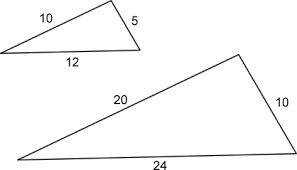记忆方法
1、simil- + -ar.
2、earlier similary, 也就是说是由similary缩略而来。
2、earlier similary, 也就是说是由similary缩略而来。
中文词源
similar 相似的
来自拉丁语 similis,相似的,类似的,来自 PIE*sem,一,一样,词源同 same,simple.
英语词源
- similar
-
similar: [17] Similar comes via French similaire from medieval Latin *similāris, a derivative of Latin similis ‘like, similar’. This or the closely related simul ‘at the same time’ have also given English assemble [13], dissemble [15], ensemble [15], resemble, semblance [13], similitude [14], simulate [17], and simultaneous [17]. Its ultimate source was the Indo-European base *sem-, *som-, which also lies behind English same, simple, single, and the homo- of homosexual.
=> assemble, dissemble, ensemble, resemble, same, semblance, simple, simulate, simultaneous, single - similar (adj.)
- "having characteristics in common," 1610s (earlier similary, 1560s), from French similaire, from a Medieval Latin extended form of Latin similis "like, resembling," from Old Latin semol "together," from PIE root *sem- (1) "one, as one, together with" (see same). The noun meaning "that which is similar" is from 1650s. Related: Similarly.
权威例句
- 1. The Ukrainians speak a Slavonic language similar to Russian.
- 乌克兰人所说的那种斯拉夫语系的语言类似于俄语。
- 2. Over the years several similar theories have been put forward.
- 几年来已经有好几个类似理论相继提出。
- 3. The Casino, where she had often danced, had suffered a similar fate.
- 她经常跳舞的赌场遭遇了相似的命运。
- 4. Again the pregnancy was very similar to my previous two.
- 同样,这次怀孕和我前两次的情形非常相似。
- 5. Place them in a jam jar, porcelain bowl, or other similar container.
- 将它们装入果酱罐、瓷碗或其他类似容器中。
